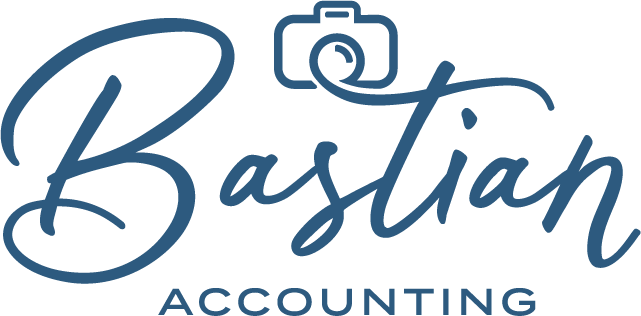Receipts 101
So, what's the deal with receipts?
Let's dig into everything you need to know about your business receipts and documentation.
The IRS requires you to keep all documentation to support what you filed on your personal and business tax return. If the IRS ever audits you, they will request documentation for any income or expenses claimed.
What about the $75 rule?
The $75.00 rule is a huge misconception - you have to keep documentation for all income and expenses, regardless of amount, except expenditures that are less than $75 for overnight travel and listed property (these are not very common).
You, the taxpayer, carry the burden of proof if ever audited, so my advice is to keep things simple and ignore this rule altogether (it most likely does not apply to you) and KEEP DOCUMENTATION FOR EVERYTHING.
What records should you keep?
The IRS requires that the documentation you keep to prove you're income and expenses show the following information:
INCOME
(Information Required)
Who paid you
What they paid you for
How much they paid you
The date they paid you
(Documentation Examples)
Deposit information (cash and credit sales)
Receipt books
Invoices
Forms 1099-MISC
EXPENSES
(Information Required)
Who you paid
Description of what you paid for
Proof of payment
Amount paid
The date paid
(Documentation Examples)
Copies of cleared checks
Account Statements
Invoices (marked paid)
Paper receipts
Note: You may need to provide a combination of supporting documents to substantiate all-expense elements.
Meals & Gifts
These require even further detail on receipts to ben allowable deductions.
Gift receipts - need to show who the gift was for and why
Meals receipts - need to have the names of those who attended and what business was discussed during the meal.
You can read more about these expenses in their blog posts linked below:
How long should you keep records/receipts?
Generally, you're required to keep receipts and any records related to you're tax return for three years after the date you file (note: the date you file, not the due date of the return).
However, there are scenarios where the IRS may require you to keep records longer. You can read about those by clicking HERE
You want to keep these records as the IRS can audit you up until six years, depending on your taxes. The link below will show you scenarios where you need to keep records longer than three years these timelines, so you want to be sure to check that out.
How should I organize my receipts?
You can go old school with a file folder and dump your receipts; however beware, many of the newer inks will be gone before you know it, and then you have an issue. Plus, if you're ever audited, you'll need to go through every receipt to find what they need.
In this digital age, it's easier than ever to get organized.
I recommend scanning or taking photos of your receipts with your smartphone and storing the files digitally in google drive or something similar organized by year and month. Organizing your documentation this way will make it easy to pull the transaction documentation up if ever needed.
What if I lose my receipts or it fades?
You will want to retrace your steps and contact vendors or those you purchase from for a copy of the receipt. Be sure moving forward to keep copies of receipts where they cannot be lost or ruined (digitally).
If you exhaust all resources to get documentation if audited, you may be able to provide the IRS with a valid explanation of the expense rather than documentation to support it. However, if the IRS disagrees, you can appeal the decision. You may also have to argue against penalties during the audit by providing facts on how you made your best effort to comply. Lack of records often leads to a 20% IRS negligence penalty. And they may not let you take the deduction after all when it is all said and done.
Bottom Line...
Documentation is king!
Do yourself a favor, set up a system and keep documentation organized for everything.
Click here to join my free Facebook community Financially Focused Photographers
I go live in this community every week answering all your tax, bookkeeping, and tax questions!Be sure to follow me on Instagram, Facebook, YouTube, and Pinterest.

